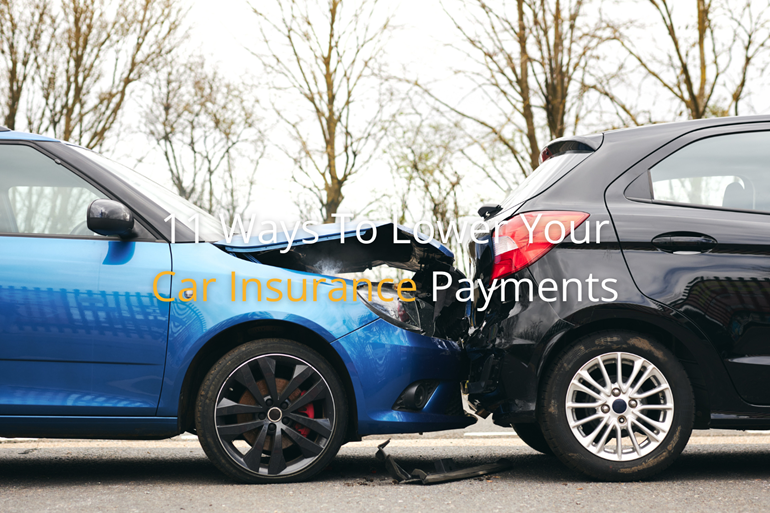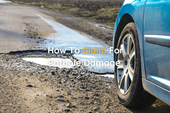
11 Ways To Lower Your Car Insurance Payments
Whether you’re purchasing RTI or vehicle replacement GAP insurance as additional cover for a car, it’s always worth ensuring you’re paying the lowest price possible for your conventional motor insurance that is required to legally use UK roads.
In the following sections, we’ll look at 11 ways to effectively reduce the premiums you pay, helping you afford the GAP cover you’ve selected for additional peace of mind.
Limiting your mileage
Limiting how many miles you drive each year makes drivers a lower risk for insurance providers, bringing down policy prices. Always be honest about the mileage you list when acquiring a quote as your insurance may be invalidated by inaccurate information.
Adding security
From installing locking wheel nuts to onboard immobilisers, security device fittings can lower premiums. Consult insurers on the impact these measures may have in terms of costs before adopting them to assess if they’re worthwhile economically.
"If you opt to pay insurance in monthly installments, it works like a loan with added interest tacked-on"
Paying yearly
If you opt to pay insurance in monthly instalments, it works like a loan with added interest tacked-on, while paying for your cover in a single payment is less expensive. If you can’t come up with the lump sum, paying it with a zero per cent credit card can be useful, providing you can make your minimum payments and repay the balance before any interest-free term ends.
Increasing any voluntary excess
Selecting a higher voluntary excess for your policy will decrease the cost of your cover. Just remember that if you must claim, you’ll be required to pay this excess on any costs when parts need replacing, so be sure you can afford this option if the worst comes to pass.
Building up your no-claims bonus
If you can build up your no-claims bonus discount, this will often help you obtain a more affordable policy as insurance providers reward drivers who are entirely claim-free with special discounts on the insurance premiums.
Considering your insurance type
When you’ve got an older model car that no longer has a high value, you may find that third party cover for theft and fire might be adequate and less expensive than a comprehensive car insurance policy. However, it’s worth noting that third-party-only cover may not provide the level of protection you require.
Parking carefully
If you possess your own driveway or have a private garage, ensure you store your car there overnight. Off-road parking can decrease the chances of your vehicle being stolen, broken into, or vandalised, which means policy providers will see you as less of an insurance risk. Potentially, this can lower the premiums you pay.
Selecting the best vehicle for your needs
Cars with a smaller engine installed will typically fall into a lower insurance group and usually have less to pay in terms of premiums. An example of this is a standard hatchback with a 1.1-litre engine being less expensive to insure than a large-engine vehicle like an SUV. An added benefit of this is that smaller engine vehicles can also be cheaper when it comes to road tax.
Avoiding making any modifications
Whether the upgrades you make involve styling to your bodywork or improved engine performance, modifications made to your car can mean a price hike for insurance premiums.
This is because of two reasons. First, by adding custom body kits and new alloy wheels and assorted performance-driven upgrades, you can make your vehicle far more attractive to car thieves, increasing the risk of it being stolen. Secondly, modified vehicles will typically be pricier to repair than cars that haven’t been customised, as their additional parts can be expensive to replace.
Describing your work
How you list your profession can also impact your insurance premiums. For example, if you don’t need to commute for work, you can list your driving activity as “for social use” which may lower the cost of your cover. A journalist may pay a different amount for insurance than a “writer” and cook less than a chef. If you use your vehicle as part of your job, remember to mention this when getting your quote as failure to do so may render any policy you obtain invalid.
Taking a professional driving course
Finally, while advanced driver courses like IAM and Pass Plus will cost motorists to complete, they’ll also allow them to enjoy discounted insurance rates with many providers. These can be particularly useful options for younger and more inexperienced drivers looking to lower their premiums. It’s worth remembering that not all insurers will account for these courses in the cover they provide so weigh up the worth of driving courses against potential savings before committing to a policy or advanced driver certification.
If you're looking for GAP insurance for UK drivers, get in touch with Direct Gap today.












